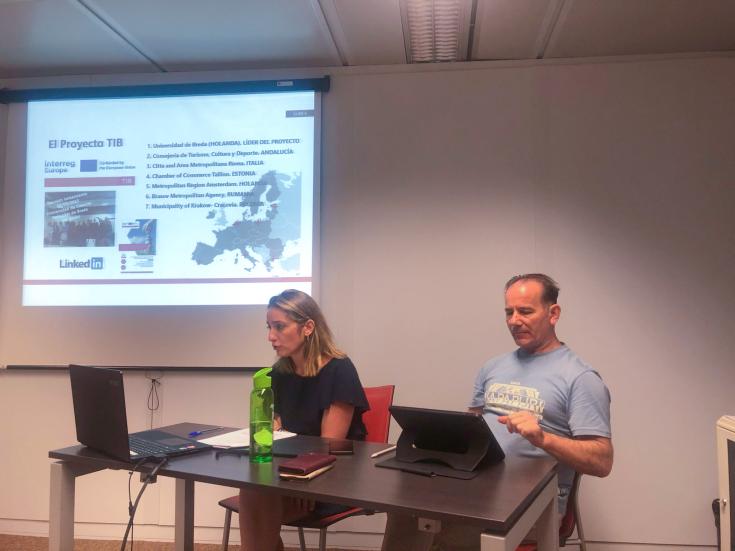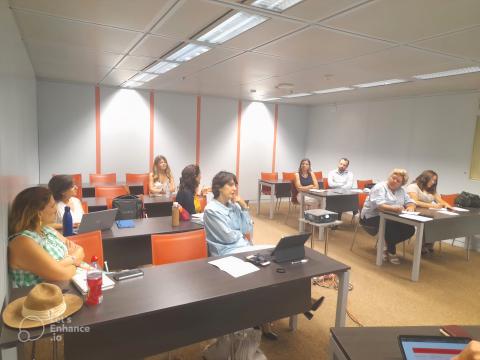1st Meeting of the Andalusian Local Stakeholder Group
In a pivotal gathering at the headquarters of the General Directorate for Tourism in Seville, the inaugural meeting of the Local Stakeholder Group for the Tourism in Balance Project unfolded, bringing together key figures from diverse sectors committed to fostering sustainable tourism in Andalucía.
An in-depth overview of the project was presented, outlining its objectives and strategies for promoting responsible and sustainable tourism practices in the region. Attendees actively engaged in a Q&A session, seeking clarification on various aspects of the project and expressing their thoughts on its potential impact.
The participants from governmental bodies, academia and industry, included:
- Inmaculada Gallego Galán: Public Company for the Management of Tourism and Sports of Andalucía
- Ana Moniche Bermejo: Public Company for the Management of Tourism and Sports of Andalucía
- Ester Tur Cano: Asoc. For the Integral Development of Sierra Morena
- Concepción Foronda Robles & Irene Navarro: University of Seville
- Pablo Morales & Anne Dominique Furphy: Seville Chamber of Commerce
- José Francisco Benitez, Natalia Garcia & Marina Slim: Organising partner of the project
The session highlighted several opportunities and challenges. Among the opportunities, the city's project for distributing tourist flows in Barrio Santa Cruz using technology was emphasised for its potential to enhance sustainability. The EPGTDA Resident Perception Survey aims to gauge satisfaction at both regional and tourist levels. Challenges include managing public spaces with conflicting interests, delineating saturation areas, combatting the rise of inauthentic souvenir shops, and addressing concerns about the loss of local identity in catering. The continuous growth in tourist numbers poses a challenge to effective management. Entrepreneurs noted reduced seasonality, sparking debates on the impact of pedestrianization on tourist centers and its contribution to sector sustainability. The complexities of balancing diverse interests were a recurring theme in the discussion.
The first meeting laid a solid foundation for future collaboration, fostering an environment where stakeholders can actively contribute to the success of the project, ultimately shaping a sustainable and responsible tourism landscape in the region.

